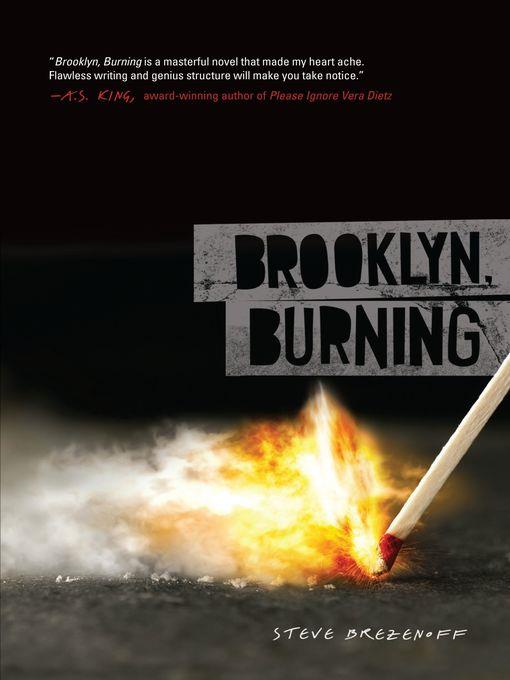
Brooklyn, Burning
کتاب های مرتبط
- اطلاعات
- نقد و بررسی
- دیدگاه کاربران
نقد و بررسی

Starred review from July 4, 2011
Sixteen-year-old Kid, a passionate drummer and painter, spends summers on the streets of Greenpoint, Brooklyn, taking refuge in Fish's bar, practicing drumming in the bar's cellar, and hanging out with friends. It's at Fish's that Kid meets Scout, a magnetic musician that Kid is drawn to but reluctant to get close to, still heartbroken after falling in love withâand losingâFelix, a musician and junkie, the previous summer. Brezenoff (The Absolute Value of -1) alternates between the events of each summer, but it's another authorial decisionâto never make clear Kid or Scout's genderâthat gives the story, and their relationship, their power (Kid's narration directly addresses Scout as "you"). The author throws out occasional references to Scout's "dirty-honey" singing voice and pixyish looks, and at one point Kid's father rages, "I've got the only kid I know who doesn't know whether to be straight or gay or a girl or a boy or what." But Brezenoff lets readers take the reins, recasting and reimagining the lead roles as often as they like. For readers with little use for labels, it's an intimate yet wonderfully open rock ân' roll love story. Ages 12â18.

September 1, 2011
Gr 10 Up-It's a summer of love for Kid and Scout, two runaway teenagers living in the Greenpoint neighborhood of Brooklyn, NY. Complicating their romance, Kid is wanted for questioning about a tragic warehouse fire that happened just before the summer began. As the season draws to a close and Kid finally decides to work toward proving his/her innocence, he/she worries about losing Scout before leaving Brooklyn forever. The story is presented in nonlinear format, often flashing back to Kid's previous relationship with an older street junkie named Felix. It is implied that this relationship ended tragically and explains why Kid is depressed when the story begins. Told from Kid's perspective, the title avoids assigning gender pronouns to the protagonist, allowing readers to make their own decisions about the character's gender and sexual identity. It's also assumed that Kid has not yet made these particular decisions either. While this is a somewhat clever idea, it also proves to be confusing at times and may ultimately prevent readers' from identifying with the character. This, combined with a menagerie of forgettable and unrealistic supporting characters, will limit the book's appeal.-Ryan Donovan, New York Public Library
Copyright 2011 School Library Journal, LLC Used with permission.

























دیدگاه کاربران